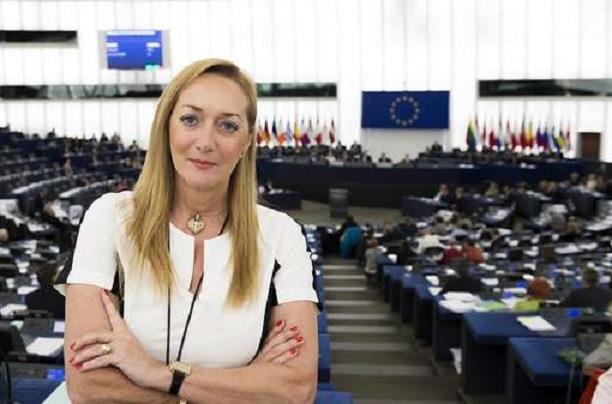EPP MEP Therese Comodini Cachia has spoken about the underground economy, with forced labour and poor working conditions, linking this issue to irregular migration and asking whether current situations in Europe are contributing to migrant abuse.
“Of particular concern is that migrants who enter Europe end up as ghosts. Nobody knows who they are or where they are and no one can protect them from abuse. What happens when unaccompanied minors – teenagers – arrive? Looking at the amount of forced labour and poor working conditions there is, you would soon begin asking if we are feeding this other irregular economy. We must stop treating migrants as ghosts and put a face to each and every one of them.”
International legislation focuses on refugees and those who require humanitarian protection, but the immigration situation also sees economic migrants.

“Should legislation regarding economic migrants be the same as legislation for refugees? One can only begin to discuss economic migrants when there is a fully-fledged and implemented European system. It is an issue that will either be dealt with in a cooperative way or each member state will need to come out with its own policies”. She mentioned that it could be worth studying economic migrants, not only to address what happens to them when they land on our shores, but also to address what happens to them when they return to their countries.

The EU has been discussing options for relocation and resettlement of irregular migrants and MEP Metsola believes that migration is a European issue and as such requires a European solution. “There should be swift and efficient returns for those not eligible for protection and there should be identification as to which labour markets in which member states need to be replenished through people from third countries.”
She stressed that a distinction must be made between relocation and resettlement. “A number of MEPs confuse the two, but they are two completely different issues. Relocation is the movement of asylum-seekers from one country to another.” As an example, Dr Metsola mentioned the 2,000 asylum seekers in Malta who were relocated across the EU. The Alliance of Liberals and Democrats for Europe (ALDE) and all the other political groups apart from the European Conservatives and Reformists (ECR) are in favour of some form of mandatory relocation measure. Resettlement refers to directly transferring a person from a third country to a member state. As an example, Dr Metsola mentioned a resettlement programme run by the UNHCR that saw 2,000 Somalis resettled in the USA. “Thirteen member states participate in this kind of programme and ALDE is one of the only parties to support the concept. ALDE say that they should encourage as many member states as possible, particularly those who have not contributed, to take them” she said.

S&D MEP Marlene Mizzi spoke of agreement between major EU Parliamentary parties and explained that this is almost the first time that three major parties, the EPP, S&D and ALDE, are on the same page. “There’s more convergence than divergence. We agree on safe passage to Europe, the issues with Dublin 2 etc.”
As for the strengthening of Frontex, Dr Mizzi argues that funding for Triton and Poseidon has tripled, which is a step forward. “Money alone won’t solve the problem. It will help, but we need far more than funds. We need a willingness by member states to share the migrants rescued.”
What will it take for Frontex to reach the same level as Mare Nostrum ? “It takes willingness, organisation, the funds they have been given and it takes the same level of enthusiasm that Italy had – an enthusiasm and passion to save migrant lives. Italy has truly done a lot.”